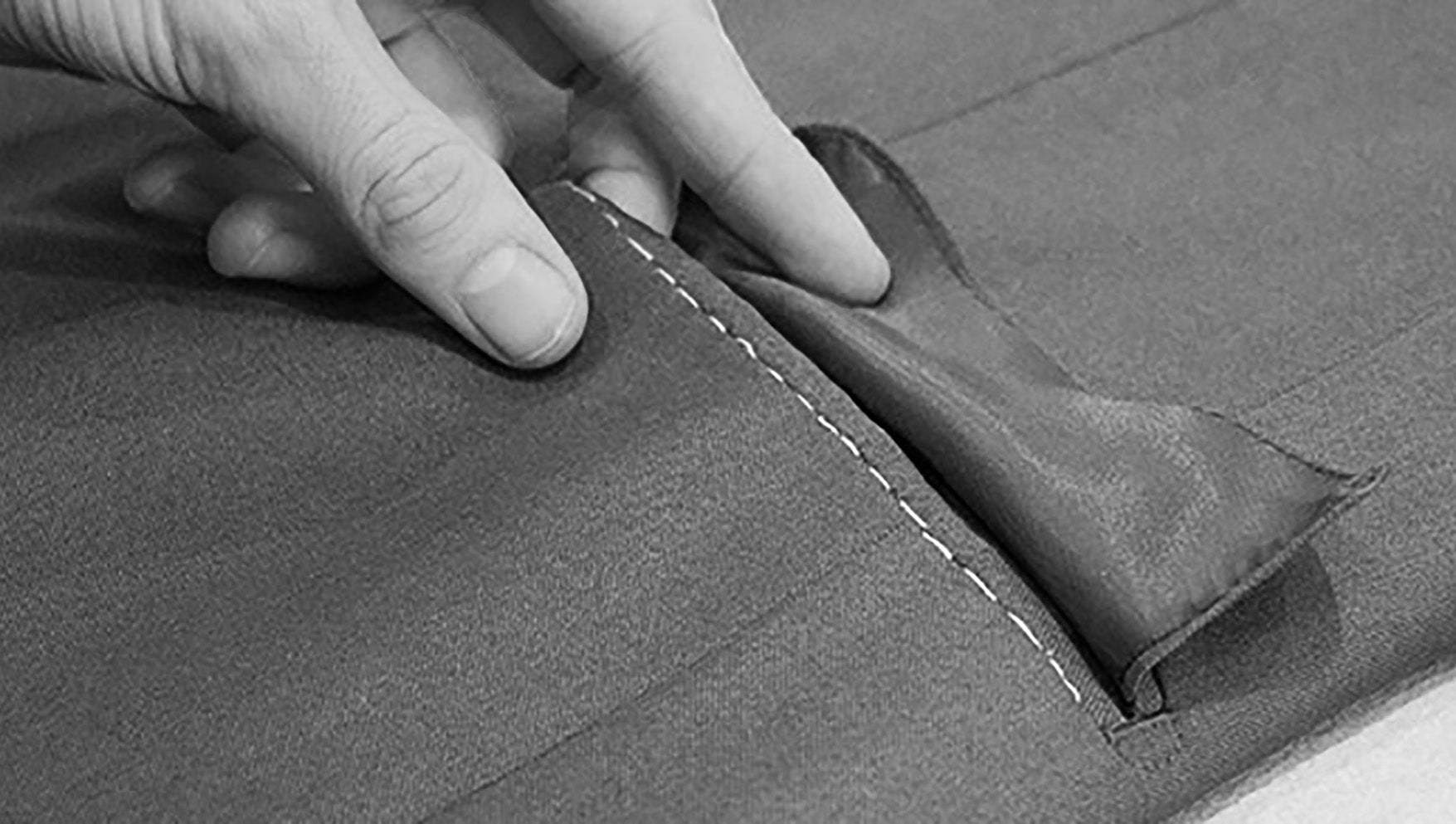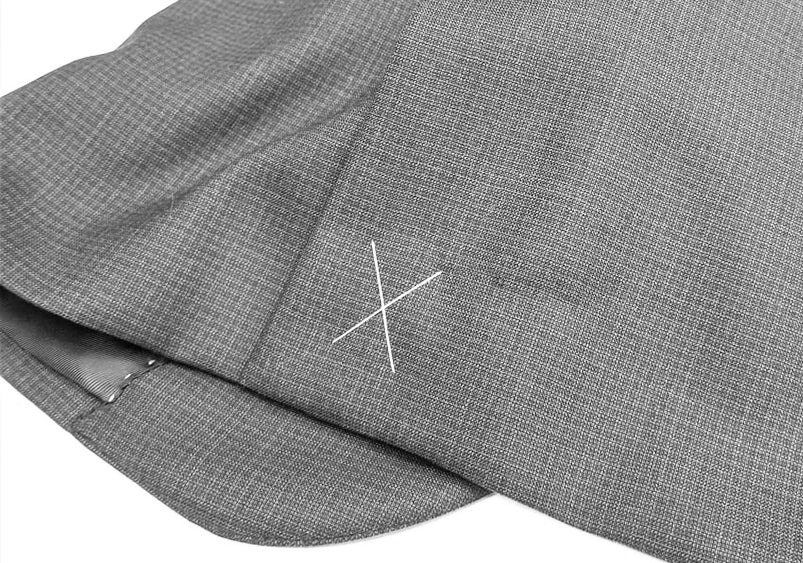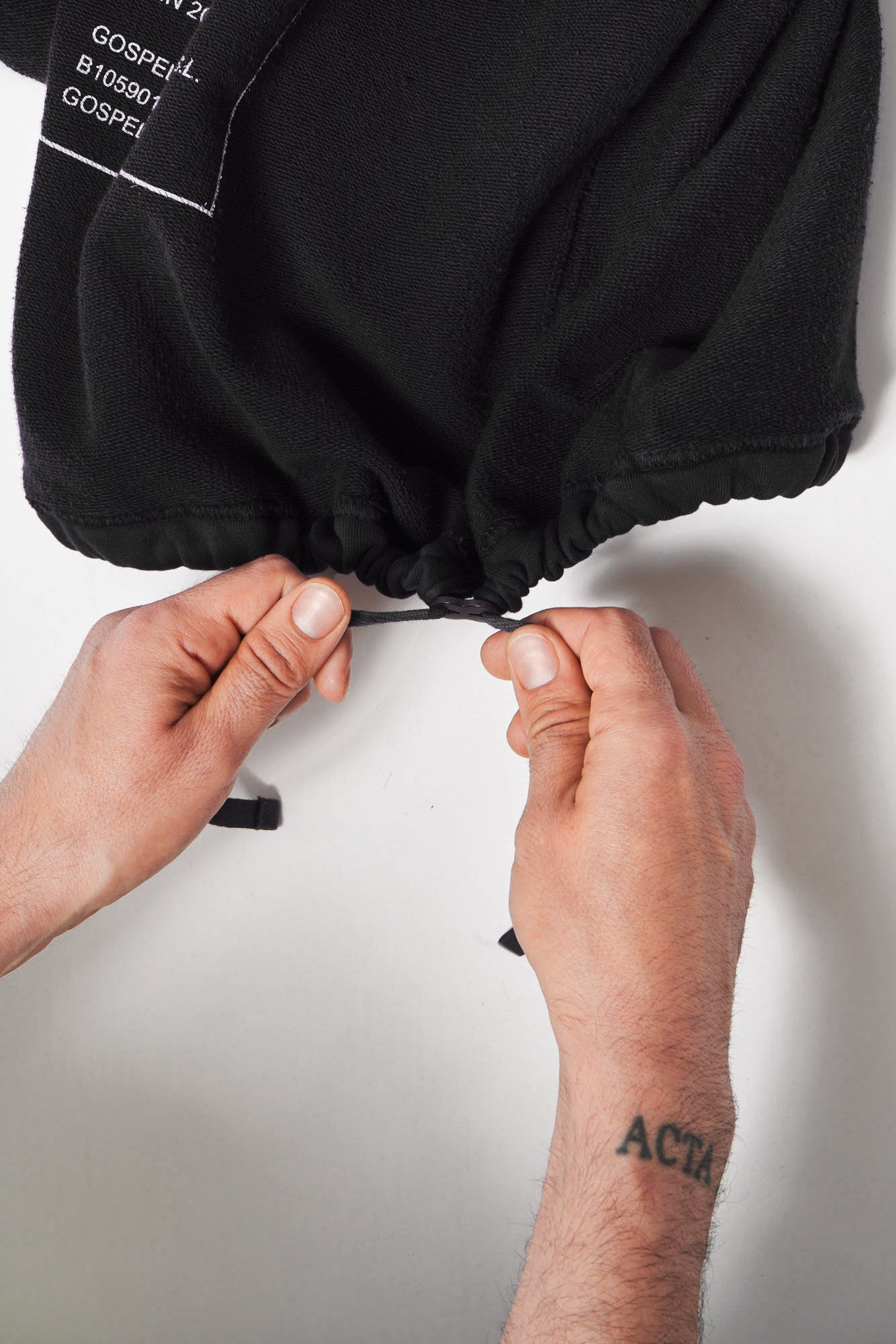Not–Ready–to–Wear
We take our guasa seriously, so sometimes we use jokes and wordplays to say the most important things we need to say. NOT-READY-TO-WEAR is our approach to production and consumption. It’s called that because, literally, you can’t just wear our clothes straight away, but also because we want to move away from the dominant practices of the industry.
Ready-to-Wear (‘prêt-à-porter’ in French) marked a major paradigm shift in 20th-century fashion, moving from exclusively custom-fitted garments to mass-produced standardized sizes. Haute Couture ceased to be practical as demand increased; but today, the overwhelming supply demands that we revisit earlier practices and reverse the direction. It is clear como el agua: the current system is no longer viable. NOT-READY-TO-WEAR is an attempt to rethink and reshape our habits, even if this means stepping back from conventional methods.
We don't just wear clothes to regulate our temperature. The act of dressing transcends covering your body; it has a ritual component that holds cultural value and creates a sense of identity. Our clothing accompanies us day by day, and we develop a relationship with it that grows over time. Garments serve as individual statements, and at the same time, they connect us to our heritage and integrate us within our community. These cultural functions should grant them emotional significance in our lives.
From this foundation, NOT-READY-TO-WEAR aims to subvert the way in which clothing is consumed and considered. Through a critical approach, we want to foster curiosity in the wearer, promote playfulness through diverse DESIGN SISTEMAS, and encourage a slower pace—not just by slowing down but by investing more time to discover and interact with our clothing.
Because good things take time, or, as we say, vísteme despacio que tengo prisa.
When our garments arrive, they come inside out, with the seams exposed and sealed by a tack stitch—similar to those on new blazer pockets—that must be unstitched to enter the piece and wear it normally.







Once this has been done, our brand label, that comes attached by the tack stitch, is left free, so you must make a deliberate decision about what to do with it. Labels are powerful cultural artifacts which we use to define our social positions; labels make things 'branded'. We want to question that.

These design choices are intended to spark curiosity: you need to stop for a moment, think, and take a closer look at the product before you can put it on. Starting a conversation and inviting you to engage in these actions, we hope to encourage a different relationship with the product—one that might make you reflect more broadly on the ways we consume.

Because we all consume, and we do so constantly. It's just the way things are. We need to eat—our bodies require energy—and for the most part, we have no choice but to move around and consume fuel. We need clothing, footwear, and rest; and when the basics are covered, new needs arise from our social nature and need for self-fulfillment. There's no getting around it; even respiration, the clockwork that keeps us going, requires the consumption of oxygen to keep the mechanism moving.
In economics, consumption is the action and effect of using products, goods, and services to satisfy these needs. It's an unavoidable aspect of life, one that every society has had to address in some manner. To some extent, consumption drives progress, but our relentless way of pushing forward, often more out of inertia than out of intention, has brought us to a point where the way we’re living is leaving a very ugly page in the book. Y ya vale.
Even if we all consume, we could consume differently. GOSPEL ESTUDIOS emerges from this premise as a reaction against throwaway culture. The fashion industry has turned the mindless consumption of clothing into a global issue as if there were no alternative ways to operate, but we argue that the emotional bonds we form with our garments are a significant part of the problem, and therefore, of its possible resolution.
NOT-READY-TO-WEAR is a guiding principle at the core of Gospel Estudios. Through design, production, and discourse, we try to challenge fast consumption to promote a more mindful practice instead. NRTW is our way of doing things as a reaction to the current state of the industry; our philosophy involves taking a critical look at the cycle of consumption and revisiting tradition in order to take ownership over our habits.
GOSPEL ESTUDIOS clothes are modular and highly configurable, but adapting them to the desired styles and scenarios requires your active participation. We believe the time spent exploring these possible configurations is a valuable part of the experience, not a drawback, and that it shouldn’t feel rushed. Our apparel is designed to be with you for the long haul, so we think it’s good for both parties to take a moment and get to know each other.
The DESIGN SISTEMAS, a series of mechanisms that enable these adaptations, form the bedrock of the NOT-READY-TO-WEAR approach: they encourage the wearer to reflect on the experience of dressing, shifting focus from the outcome to the process itself.
Much of the issue with everything that feels wasteful and rushed is that it hasn’t actually been made to endure—neither in quality nor in design. For us, durability starts with the materials and methods we use to craft our products, but a sense of timelessness and aseasonality is also embedded in the design. We refuse to push for garments that we believe will quickly become outdated due to trends, or follow the mad timings of an industry that exhausts individuals and resources. We want to do it our way, on our own tiempos, and by making the most of the off-peak production periods of the factories we partner with.
With chapters and verses, we break from seasonal cycles, creating arrangements and releases that avoid fashion schedules and serve as organic ways to divide our work.


However, a disclaimer: somos nuevos. We’re rookies, still navigating through our initial stages as a brand, and even if our intentions are clear, it’s really up to you—the people who use our products—to tell us how we’re doing. We’re never not learning, and we appreciate your patience as we work to improve.

The DESIGN SISTEMAS are built on time-tested sewing elements like knots, buttons, loops, and buttonholes: we're not reinventing the wheel; we’re reclaiming tradition in contexts currently dominated by technology.
Our intention is moving wearers away from the rush of instant gratification and towards a ritual of interaction with the clothes that requires tiempo and care. We want to make the process slower, more playful, and curious.
We believe there’s much to learn from the past: our elders used to buy fewer, better-quality items and repaired them over time. However, GOSPEL ESTUDIOS will never just be an archaeological project, nor a responsible brand that designs clothes that all look like pajamas. Hacemos cosas que nos molan. We’re about making things we like in ways that resonate with us. We strive for mindful consumption and reconnection with tradition, but do so while delivering a defined aesthetic that is nuestra, our own, and will continue to evolve over time in our cuts, colors, styles, and SISTEMAS. Stay with us as we grow; we’re never ready to wear, but always ready to change.